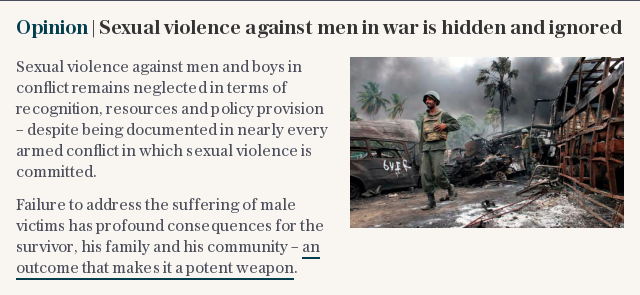Nearly half of millennials believe there will be a third world war in their lifetime

Millennials around the world are gloomy about their future with nearly half believing that there will be a third world war in their life time, a survey has showed.
As tensions escalate between Iran and the United States and the ceasefire in Yemen looks increasingly fragile a survey of 16,000 people aged 20 to 35 in 16 countries around the world - seven of which are experiencing active conflict - has revealed that they are pessimistic about world peace.
The poll, conducted by the International Committee of the Red Cross, surveyed millennials on their attitude to war and the rules governing conflict.
The survey does not dispel the stereotype that millennials are the "anxious generation" as it found that 47 per cent of respondents think it is more likely than not there will be a third world war in their lifetime - despite the fact that deaths from conflict are at an all-time low.
Interestingly, views were split evenly between respondents in countries with active conflict - where 48 per cent thought a third world war was likely - and those in countries where there was no conflict, where 46 per cent agreed with the statement.

And although 84 per cent believe the use of nuclear weapons is never acceptable, 54 per cent of those polled said it is more likely than not that a nuclear attack will occur in the next decade.
The survey also asked respondents in countries where there is conflict - Ukraine, Syria, Palestine, Israel, Nigeria, Colombia and Afghanistan - whether they thought that there would be an end to the war in their countries in the next five years.
Respondents in Ukraine and Syria were the most optimistic - 69 per cent and 60 per cent respectively said they thought the conflict in their countries would end by 2024.
Those in Palestine and Israel were the most pessimistic - 65 per cent and 52 per cent respectively said the violence in their countries would never end.

Yves Daccord, global director general of the ICRC, said that people feel war is closer to them than in the past.
"If you look at the official numbers of people dying in wars then the figures are much lower. But with the Middle East question and migration there is a feeling that wars are much closer than they used to be.
"There is no control and no containment... States are waging war very differently nowadays - using special forces, proxies, engaging in cyber warfare. It's much more difficult to know who is actually at war," he said.
While war and conflict were in the top five concerns of millennials across the world, those living in countries where there was no war put other worries at the top of their list.
Around 70 per cent of respondents in the UK, France and Switzerland said that global warming was their biggest fear. While in the United States just over half of respondents said that it was access to health care.
Unemployment was the top concern in Afghanistan, Nigeria and Palestine.

The ICRC said the survey reveals “worrying trends” that point to a lack of respect for the basic human values enshrined in international law: 37 per cent of those surveyed said torture is acceptable under some circumstances – even after the United Nations convention banning torture was explained to them.
And 15 per cent of those surveyed said that military leaders should do whatever it takes to win, regardless of the civilian casualties generated.
However, 78 per cent of respondents said combatants should avoid civilian casualties as much as possible.
Overall, 73 percent said that addressing the mental health needs of victims of conflict is just as important as addressing food, water and shelter. The highest response came from Syria at 87 per cent; the lowest came from Israel at 60 per cent.
Mr Daccord said on the issue of torture those most likely to condemn its use were the military themselves who say it elicits incorrect information and leads to revenge attacks.
"The taboo around torture has gone - we need to recreate it," he said.
For all the latest news and investigations, sign up to The Telegraph's weekly Global Health Bulletin newsletter

